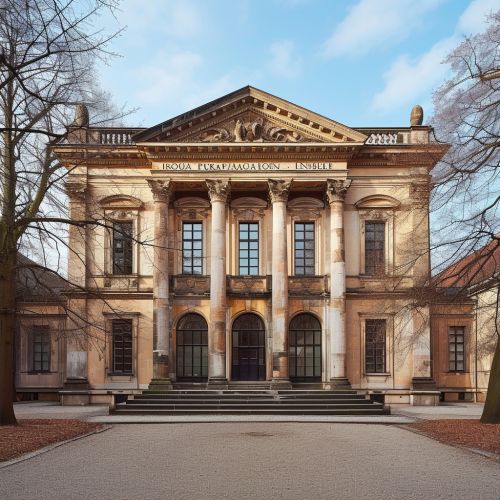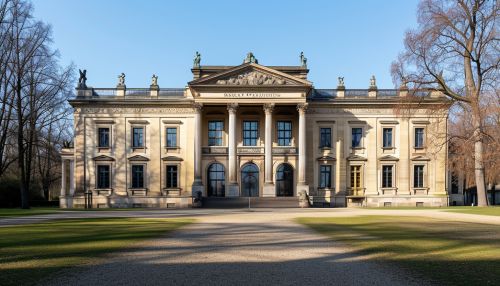Royal Prussian Academy of Sciences
History
The Royal Prussian Academy of Sciences (Königlich Preußische Akademie der Wissenschaften) was an academic institution established in Berlin, Prussia, on 11 July 1700. It was initiated by Prince-elector Frederick III, who later became Frederick I, the first King of Prussia. The Academy was modelled after the Royal Society and the French Academy of Sciences, with the aim of promoting science and research in Prussia.


Organization and Structure
The Academy was divided into two classes: the physical and the philosophical. The physical class was concerned with the natural sciences, while the philosophical class dealt with the humanities. Each class had its own president and secretary, and they were overseen by a perpetual secretary, who was the head of the entire Academy.
Notable Members
The Royal Prussian Academy of Sciences had numerous notable members throughout its history. These included mathematicians such as Leonhard Euler and Carl Friedrich Gauss, philosophers like Immanuel Kant and Gottfried Wilhelm Leibniz, and natural scientists like Alexander von Humboldt and Justus von Liebig. The Academy also had foreign members, including Albert Einstein, who was a member from 1914 until his emigration to the United States in 1933.
Research and Achievements
The Royal Prussian Academy of Sciences made significant contributions to various fields of knowledge. In the natural sciences, the Academy was instrumental in the development of quantum mechanics and relativity theory. In the humanities, the Academy produced important works in the fields of philology, history, and archaeology. One of its most notable projects was the Corpus Inscriptionum Graecarum, a comprehensive collection of ancient Greek inscriptions.
Dissolution and Legacy
The Royal Prussian Academy of Sciences was dissolved in 1945, following the end of World War II. However, its legacy continues in the form of the Berlin-Brandenburg Academy of Sciences and Humanities, which was established in 1992.
